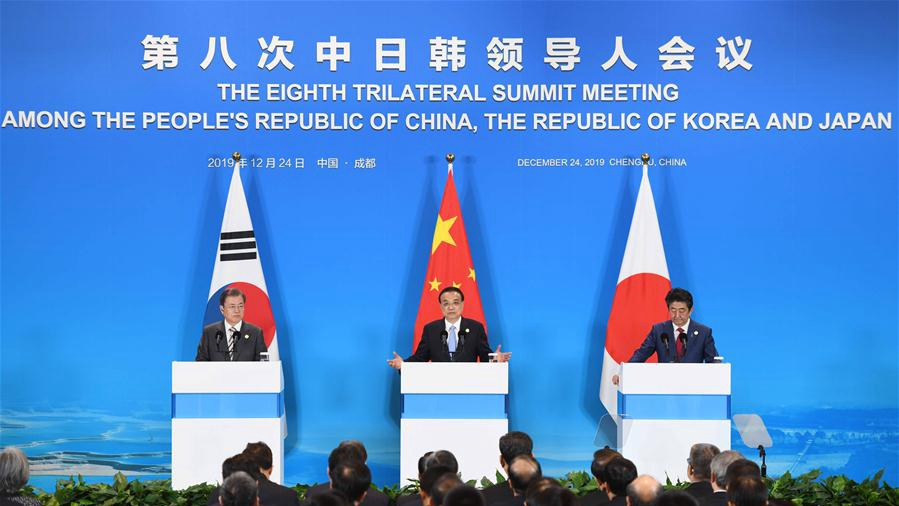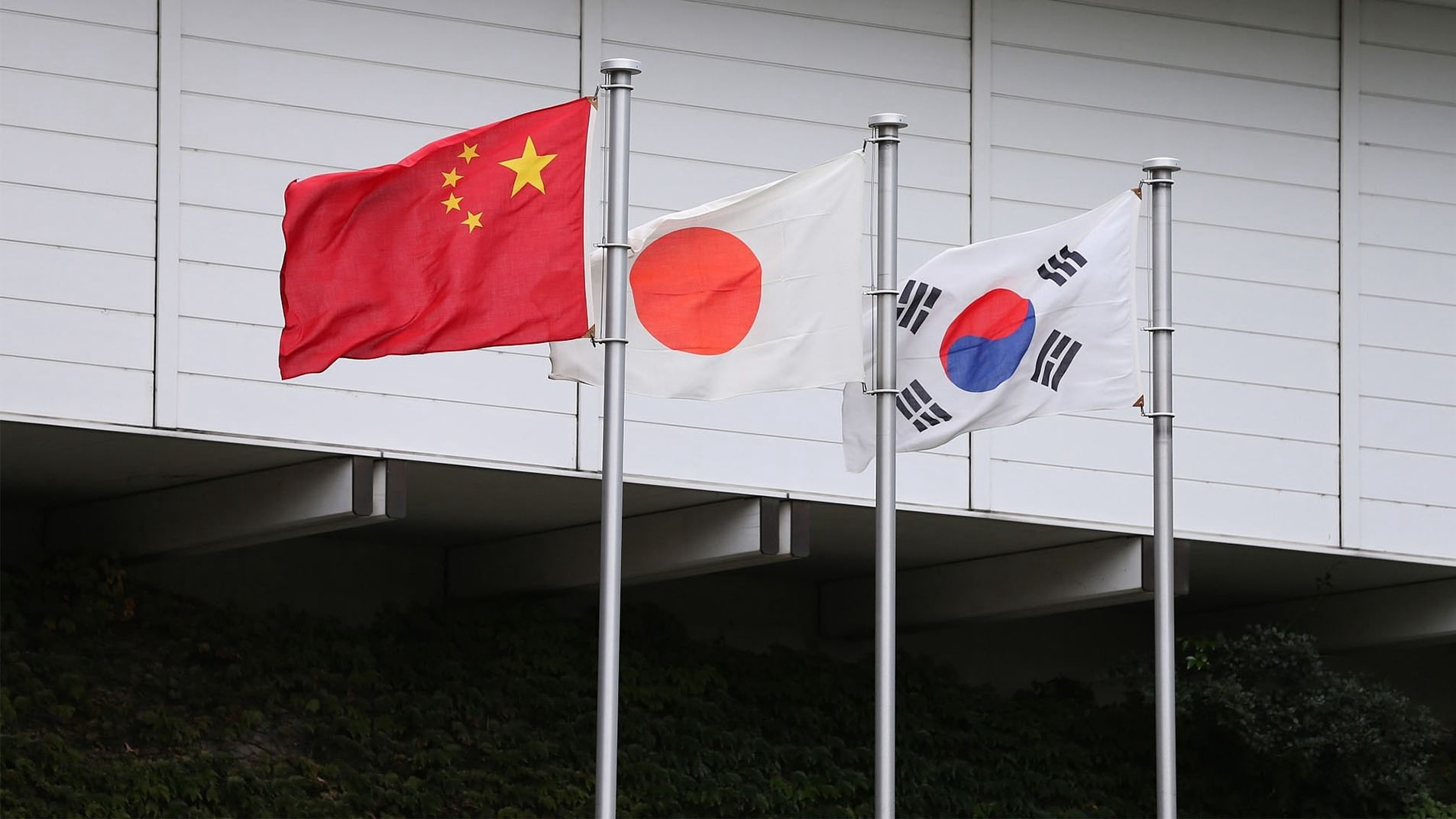03:14

This year marks the 20th anniversary of trilateral cooperation among China, Japan and the Republic of Korea (ROK). But relations among the three major players are experiencing dynamic and complicated changes.
To counter uncertainties, leaders of the three economies have agreed to accelerate negotiations to promote trade and investment, also the deadlocked talks between the U.S. and the Democratic People's Republic of Korea (DPRK) top the agenda.
The vice president of the China Institute of International Studies, Rong Ying, named three factors which brought leaders of the three countries together. Firstly, because of the global context of the trade dispute and geopolitical rivalry between China and the United States; secondly, because of the denuclearization on the Korean Peninsula; and finally, they realize that corporation will bring more to their domestic agenda - politically, economically and diplomatically.
Dr. Zhao Hai, research fellow at the Chinese Academy of Social Sciences, added that the top priority for the trio is to unite against unilateralism and protectionism and tighten cooperation. Despite the historic problems such as territorial disputes, historical differences, and also the factor of American intervention, the general economic cooperation continues to grow, as the data illustrates that the three countries now account for 24 percent of the global economy and the trade exceeded by 720 billion U.S. dollar last year.
Eunjung Lim, associate professor of the Division of International Studies at Kongju National University, elaborated that the area of "mutual dependency" among the three countries has been greater and greater. It's just the "strategy calculation" of all players that will sometimes cause conflict. In that case, she thinks all participants need to reconstruct their mutual perception to improve the trilateral relationship.
"As long as we see each other as a kind of rival rather than a partner, sometimes unnecessarily all these tensions go up to another level," she said.
Yorizumi Watanabe, professor emeritus at Keio University, believes that having China and the ROK together with Japan can certainly demonstrate the willingness of Northeast Asian countries' united front for pursuing liberal trade and more investment across the region and even extends to the rest of the world.
Watanabe adds China-Japan relations have constantly improved since Chinese Premier Li Keqiang visited Japan last year, and it is necessary to move forward and consolidate this kind of positive sentiment. "Without having a good relationship between the two countries, it is not possible to realize [the making of trilateral FTA]," he said.
Northeast Asia region: Competition or coordination?
Japan and the Republic of Korea are closer allies of the United States, but Rong believes that the U.S. is single-handedly pursuing trade negotiations. The approach is sort of "America first" with no regards for its allies, and Japan and the ROK have suffered at the hands of this American approach, and hence they need to have more leverage or choices.
Rong also pointed out that the three countries have integrated a developed and closed regional or global value chain, and all sides have agreed to upgrade this cooperation in more areas and issues, such as high tech and innovation.
"All these arrangements are either competing or complementing each other, all depends on whether we are able to see the bigger picture and whether we are able to manage the differences or competition," he said.
A 'Christmas gift' from DPRK?
The DPRK earlier warned of a "Christmas gift" for the U.S., suggesting that they may conduct new weapons tests if the United States does not ease sanctions. Meanwhile, the DPRK-set year-end deadline of "nuclear-talks" is approaching, while Stephen Biegun, U.S. special envoy for the DPRK, dismissed it during a visit to Seoul.
"I hope Mr. Kim Jong Un can give us a pleasant gift rather than a shocking gift", Lim said, adding that nobody wants to see any kind of further provocation from the DPRK side but Pyongyang's repeated requests to show something preemptive were rejected by the United States. She also stressed upon the importance of Beijing, saying that Beijing can lead a multi-level dialogue with Seoul, Tokyo and Washington to break the deadlock.
02:19

Rong thinks denuclearization is a long process and requires a road map to ensure a commitment from all sides. But as we look at this process, he is worried that either the DPRK or the United States may go back to the vicious cycle.
Zhao said that the aim for all countries in the region is to have a nuclear-free Korean Peninsula but right now the American domestic politics is preventing that from happening.
"If Trump is successful in dealing with the DPRK, then he will be running into a wall by domestic politics. And if he fails, of course, it's going to be celebrated by his opponents domestically," he said.
"Dialogue with Yang Rui" is a prime time English-language daily talk show on CGTN. The 30-minute program covers a wide range of domestic and international topics, providing a balanced and critical perspective on current affairs and analysis within the framework of cross-cultural and multi-disciplinary comparisons.
Schedule: Monday-Sunday
Time (GMT): 03:30, 11:30, 19:30
(If you want to contribute and have specific expertise, please contact us at opinions@cgtn.com.)